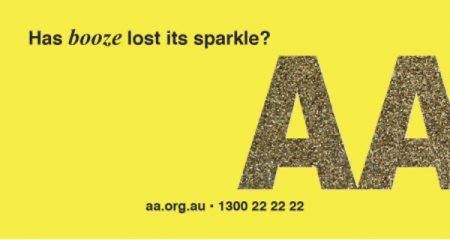Having Trouble with Alcohol?

Alcoholics Anonymous is a fellowship of people who share their experience, strength and hope with each other that they may solve their common problem and help others to recover from alcoholism.
The only requirement for membership is a desire to stop drinking. There are no dues or fees for AA membership; we are self-supporting through our own contributions. AA is not allied with any sect, denomination, politics, organization or institution; does not wish to engage in any controversy; neither endorses nor opposes any causes. Our primary purpose is to stay sober and help other alcoholics to achieve sobriety.
AA is an informal society of more than 2 million recovering alcoholics throughout the world. In Australia, there are about 18,000 members. They meet in over 2000 local meetings spread around the country. Meetings range in size from a handful in some localities to a hundred or more in larger communities.
AA is nonprofessional – it doesn’t have clinics, doctors, counsellors or psychologists. All members are themselves recovering from alcoholism. There is no central authority controlling how AA groups operate. It is up to the members of each group to decide what they do. However, the AA program of recovery has proved to be so successful that almost every group follows it in very similar ways.
AA is not a religious organisation nor is it affiliated with any religious body. It welcomes members of all religions, agnostics and atheists alike. You don’t have to sign up or achieve anything to be a member. You’re a member of a group if you choose to be. You can come and go as you please. No one is “in charge” of a group. We work through the offer of help and suggestion only. No one can tell you what you should or shouldn’t do.
AA works through members telling their stories of what we used to be like, what happened and what we are like now. The AA program, known as The Twelve Steps, provides a framework for self-examination and a road to recovery, free of alcohol.
What AA does not do
AA does not:
- Furnish initial motivation for alcoholics to recover
- Solicit members
- Engage in or sponsor research
- Keep attendance records or case histories
- Join “councils” of social agencies
- Follow up or try to control its members
- Make medical or psychological diagnoses or prognoses
- Provide drying-out or nursing services, hospitalisation, drugs, or any medical or psychiatric treatment
- Offer religious services
- Engage in education about alcohol
- Provide housing, food, clothing, jobs, money or any other welfare or social services
- Provide domestic or vocational counselling
- Accept any money for its services, or any contributions from non-AA sources
- Provide letters of reference to parole boards, lawyers, court officials, social agencies, employers, etc.
Only you can decide whether to give AA a try, we don’t diagnose you and tell you if and when you should stop drinking. That’s your decision to make.
What: Alcoholics Anonymous
When: All-year round
Call: 1300 22 22 22
Where: Offices 1 & 2, 9A Elizabeth Bay Road, Kings Cross
(please call in advance if visiting, until further notice)
For more details CLICK HERE
Share "Alcoholics Anonymous"
Copy










